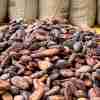Co-operative societies: Supreme Court strikes down parts of a Constitutional Amendment
The Hindu
Verdict significant amid States’ fears whether new Central Ministry of Cooperation would dis-empower them
In a major boost for federalism, the Supreme Court on Tuesday struck down parts of a Constitutional Amendment which shrank the exclusive authority of States over its co-operative societies, a sector considered as a massive contributor to the economy. Part IXB, introduced into the Constitution through the 97th Amendment of 2012, dictated the terms for running co-operative societies. The provisions in the Amendment, passed by Parliament without getting them ratified by State legislatures as required by the Constitution, went to the extent of determining the number of directors a society should have or their length of tenure and even the necessary expertise required to become a member of the society. The SC however said the Centre has power over Multi State Cooperative Societies which operative across States. The Centre justified they were injecting ‘professionalism’ and autonomy into the functioning of the societies. Lack of accountability by the members has led to poor services and low productivity. Even elections are not held on time. Co-operatives need to run on “well-established democratic principles”, the government argued in the apex court.More Related News













